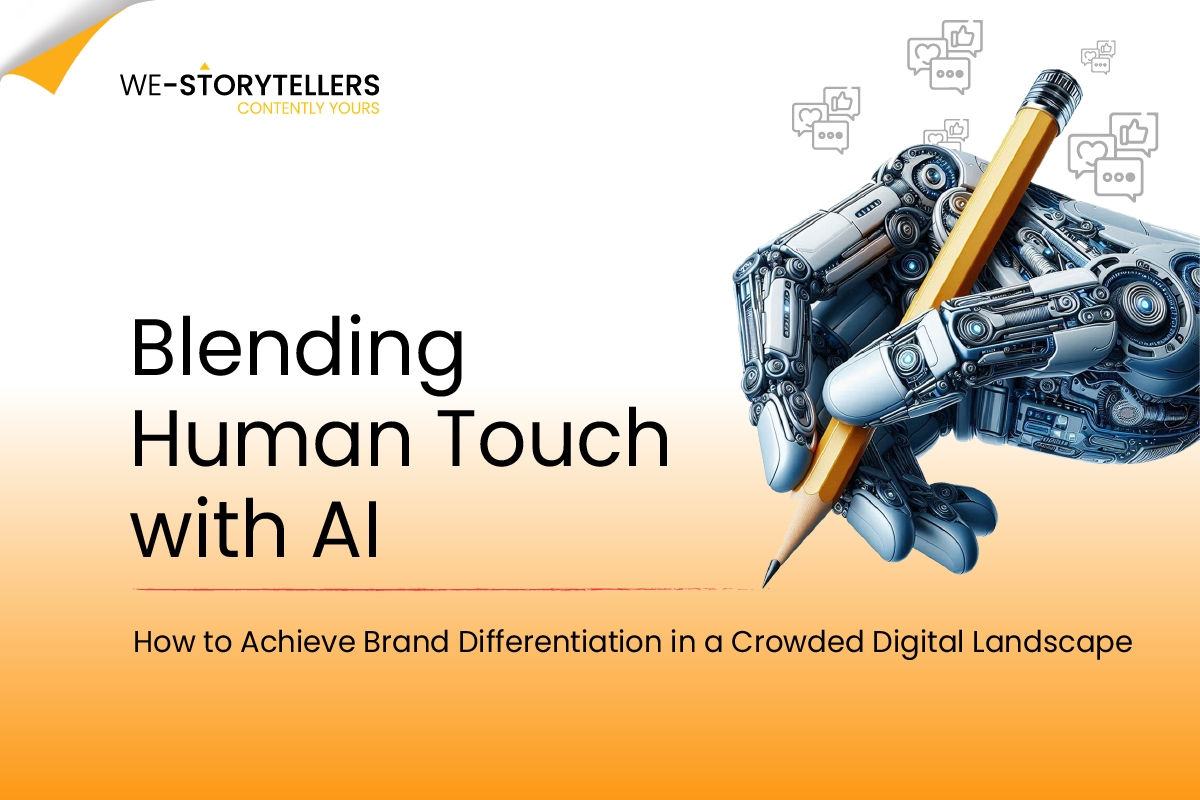AI, with its diverse content generation tools, is significantly reshaping the content marketing industry. A recent Statistical report reveals that the global market revenue of AI in marketing is expected to reach 36 billion dollars by the end of 2024.
The AI tools no doubt act as magic beans for marketers today, helping them curate enormous amount of content on their fingertips, analyze data patterns and derive insights to understand customer sentiments and behavior. However, the bigger question remains – how can brands differentiate themselves in a marketing landscape saturated with content?
Before we delve deeper into the intricacies of AI and its impact on brand differentiation, let’s first understand what brand differentiation is and how emotion-driven content plays a critical role in this process. Continue to read on!
Understanding Brand Differentiation: Why it Matters
Brand differentiation is when you nurture a distinct identity for your brand, give it a unique personality and tone that sets it apart from the crowd. It is more like communicating the ‘why’ behind your brand to your target audience – giving them reasons for your existence, demonstrating value and creating a strong connection with them.
Take Apple for instance, Apple’s brand voice isn’t just about selling products, but about conveying an attitude that reflects creativity and innovation. Similarly, take Nike. The brand showcases aspiration, motivation, and empowerment in its content across all platforms – quite symbolic of its tagline ‘Just Do It’. These brands have clearly established their value proposition, showcasing their values in the content they share and successfully bringing people together around a shared vision.
That said, to distinguish your brand from competitors, it is important to consider the personality of your brand, shared values, experiences, beliefs and human intuition. This way you can connect and engage with your audience, inspiring them to act.
Can GenAI Help Marketers with Brand Differentiation?
Well, the answer is both ‘yes’ and ‘no’. Although AI can help brands generate content, it cannot tailor to specific audiences or relate to human emotions and values.
AI content tools can help marketers efficiently spot market patterns, analyze customer behavior, and make suggestions based on vast sets of data. But when it comes to generating content, it inherently lacks human intuition.
Another critical aspect is that AI is data-driven and hence, its output is based on the information available on the World Wide Web. While this helps in optimizing content for analytics, there is a risk of missing out on the nuances that a human mind could naturally pick up on, relate to and connect with the bigger audience.
Relying solely on AI-generated content can create a disconnection from the audience. Authentic engagement requires understanding and empathy which is distinctly human. Therefore, striking the right balance of human creativity and AI-generated efficiency is key in overcoming challenges and maintaining brand differentiation.
Playing it Together
As we explore the role of AI and human touch in brand differentiation, it’s crucial to understand their significant contributions. To stay relevant in the current marketing landscape, it’s important for marketers to embrace the capabilities of AI.
While AI can do wonders in optimizing content including analyzing data, keyword research, A/B testing etc., it is emotion driven narratives that make a brand relatable and unique. One of the biggest challenges in brand differentiation is to convey empathy, values, beliefs and other human elements that form the core essence of the brand.
Every marketer should therefore understand the extent to which AI can contribute to brand differentiation. Remember, it’s not about churning voluminous content but adding your brand’s unique personality and flavor to it.
Want to know how we can help you kick off your brand story with a strong narrative? Visit us here – https://we-storytellers.in/.


